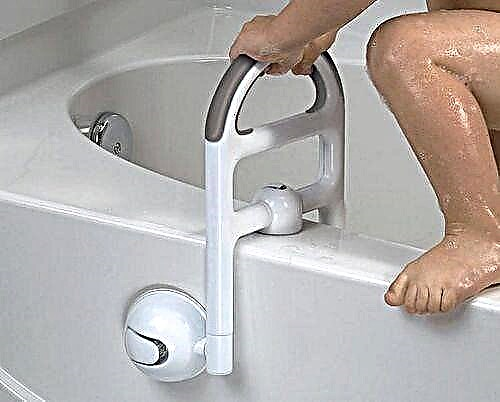Being born into the world, a person is a blank slate. The task of parents is to ensure the safety of the baby, instill in him moral norms and values, and create conditions for the full development of the personality. This is not easy to do. Indeed, as he grows up, the child begins to show his own individuality, defends his opinion, sometimes plays pranks and indulges. One of the most famous and ancient parenting methods used by parents is the carrot and stick, or reward and punishment method. How effective is it?

The whip method
The whip method consists in physically influencing a child in order to punish a misconduct. Many parents can slap a child, hang it on the head, put it in a corner, or even lash with a belt. The purpose of such actions is one - to inflict pain, to show their power over the baby, to put in place.
In theory, this method can be quite powerful. Perhaps the child will stop negative behavior out of fear of pain, inhibitions, and deprivation. However, the child can demonstrate approved behavior only in the presence of mom or dad.
Physical punishment has a destructive effect on the psyche of a little person. They undermine trust in parents, and create fear and resentment against adults. Children who are systematically punished with a "whip" become withdrawn, shy, depressed, learn to lie and dodge.
Upon reaching adolescence, these guys may "rebel" and show negativity towards adults. That is, to deny the norms of behavior adopted in society, to proclaim their own anti-values and follow them.
We read on the topic:
- Why you can't spank a child - 6 reasons - https://razvitie-krohi.ru/psihologiya-detey/pochemu-nelzya-shlepat-rebenka-6-prichin.html
- To beat or not to beat a child - the consequences of physical punishment of children - https://razvitie-krohi.ru/psihologiya-detey/bit-ili-ne-bit-rebenka-posledstviya-fizicheskogo-nakazaniya-detey.html
- Do I need to punish a child at 3 years old: the opinion of parents and a psychologist - https://razvitie-krohi.ru/psihologiya-detey/nuzhno-li-nakazyivat-rebenka-v-3-goda-mnenie-roditeley-i-psihologa.html
Carrot method
The carrot method consists in the obligatory reward of the child for the desired behavior, help, and a completed assignment. Rewards are essential in the upbringing process, but you also need to be careful with them. There is a danger of teaching the baby that for any positive action he will receive a reward.
In the matter of rewarding a child, it is important to distinguish between two forms of desired behavior. The first is when the baby is successful in his activities. For example, a one and a half year old child learned to assemble a pyramid. Or a student has solved a difficult problem on his own. In these cases, the child himself rejoices at his achievement, the feeling of success is for him an internal, automatic reward.
A small person needs sincere joy, love, and empathy from parents in such moments. If adults give a coin for a correctly solved problem, they can extinguish internal satisfaction, replacing it with the expectation of a reward from the outside.
The second form of behavior for which the child must be encouraged is moral behavior. This is the expected and socially approved course of action by parents, especially in critical situations. After all, a child is not born with moral norms, to instill them is the task of the educator.
Over-rewarding a child harms the development of his personality. When parents pamper too much, indulge in whims, take care of their offspring intensely, he can grow up selfish, spoiled (12 signs of a spoiled child), an infantile person who is not able to independently solve life's difficulties.

Reasonable mix of rewards and punishments
So what should you do? How to raise a kid so as not to break his psyche with punishments and spoil him with unnecessary rewards? There is only one answer: to find a middle ground, it is reasonable to combine both. And it is imperative to take into account the individual characteristics of the toddler: the approach to the tomboy and the introverted dreamer will be different.
How to punish a child: rules for parents
- Be clear about the boundaries of what is permitted. Tell your baby what is good behavior for you and what not to do. Talk about the punishment for bad behavior and make it clear what exactly awaits him if he does not obey;
- Follow the sequence. “No” should always mean “no”. The child should know that if he breaks the prohibition, he will definitely face a specific punishment. Do not allow the payment for a wrongdoing to depend on the mood of the parents or other circumstances;
- Be united in your requirements. That is, mom and dad, and preferably grandmother and grandfather, should act as one front (a friendly family will turn the mountain, or how to overcome differences in raising a child). Children quickly understand from whom they can twist ropes and begin to manipulate adults (little manipulators: how to react to a child's tricks? 10 most successful children's phrases);
- Punish the offense accordingly. For the first time, a misdemeanor or a small prank deserves only a warning, while an intentional violation of discipline or aggression deserves serious punishment (to punish a child for accidental misconduct?);
- Keep calm... When punishing, do not shout, but try to calmly explain to the child what exactly he did wrong, and what kind of behavior you expect from him in the future. Pay attention that it is the act that you do not like, and that you love the little one very much and are upset when you have to deprive him of something;
- Never take educational actions in a bad mood.
Have you often wondered how to properly punish your child after his leprosy and disobedience? Do you listen to how your parents acted in such cases? Was it fair to punish you in childhood, and how to punish your own children correctly so as not to injure their psyche? Psychologist Julia Ulyanova will tell you:
How to reward your child correctly: recommendations for parents
- Praise your child for specific actions... Better to say “What order in the room! Nice to look at! "Than" Well done! " about the removed toys;
- Don't reward for natural things. If the offspring cleared the bed after himself, washed the dishes, you shouldn't say “Good girl! You cleaned up after yourself! " By this we demonstrate a lack of faith in the child's self-sufficiency;
- Pay attention to your baby's positive emotionsthat he experienced in achieving success. This will help him analyze his feelings and try to continue to achieve his goal;
- Don't use money as an incentive... If you like the idea of material reward, it's best to give out buttons, coffee beans, etc. And for the agreed amount, you can be rewarded with a trip to the circus, to the attractions, to the children's center (children and money: 10 mistakes of financial education).
And don't forget that the most effective method is love education. When a child feels unconditional love and respect from his parents, punishments and rewards will be received correctly and fall on fertile soil.
Everything should be in moderation - both affection and severity. It's just that many parents do not know how to stop at that “golden mean” where there is no place for pampering or assault.
- 25 tips for raising your child in love and peace
- 12 Easy Ways To Show Your Love To Your Child Every Day
- Top 10 Parenting Mistakes in Parenting
Opinions from the forums:
fergie: The whip must be present at the beginning of a child's life. Until the age of five, they did not bring up, the child did not understand what is good and what is bad - consider that you missed the moment. And if from childhood everything is put in a child's head, then then you can build communication on one "carrot".
Lena: For the first time I hear that at the beginning of a child's life the whip should be present. He needs to be explained from the first days of his life, to talk to him, and not to grab the whip. No, well, of course you need to scold, I do not argue, but the whip as for me is the very last thing that can be. If issues are resolved by hitting the child, then the further, the more difficult, the child will grow up and will simply hate you.
Zhenya: I agree with the golden mean, although it is incredibly difficult to find it. You must try to become your child's friend and authority, so that he is not afraid to share with you, that he listens and understands that you are on his side, but he must be responsible for his misdeeds and must understand this too.
Dasha:If he constantly scolds the child, he will not have an incentive to do something well - why if he will be scolded anyway, and at best, simply will not be noticed? If you constantly praise him, he will grow up spoiled, not accepting criticism. It is necessary to combine 2 methods. The effect is as follows - scold, explain why you scolded - he will know that it is bad (not the first time, of course), did something even if insignificant in your opinion - be sure to praise, he will have an incentive to do something that is not just good, better than last time ..
Take care of your children
Do not scold them for their pranks.
The evil of my bad days
Never rip off on them.
Don't be seriously angry with them
Even if they are guilty,
Nothing is dearer than tears
That from the cilia of relatives rolled down.
If fatigue falls down
There is no urine to cope with her,
Well, sonny will approach you
Or my daughter will stretch out her hands.
Hug them tight
Cherish children's caress
Is this happiness? short moment,
Hurry to be happy.
After all, they will melt like snow in spring
These golden days will flash
And leave the hearth dear
Grown up your children.
Flipping through the album
With childhood photographs
Remember the past with sadness
About the days when we were together.
How will you want
At this time, come back again
So that they sing a song to the little ones,
Touch the cheeks with tender lips.
And while there is children's laughter in the house,
There is nowhere to go from toys
You are the happiest in the world
Take care of your childhood, please!




